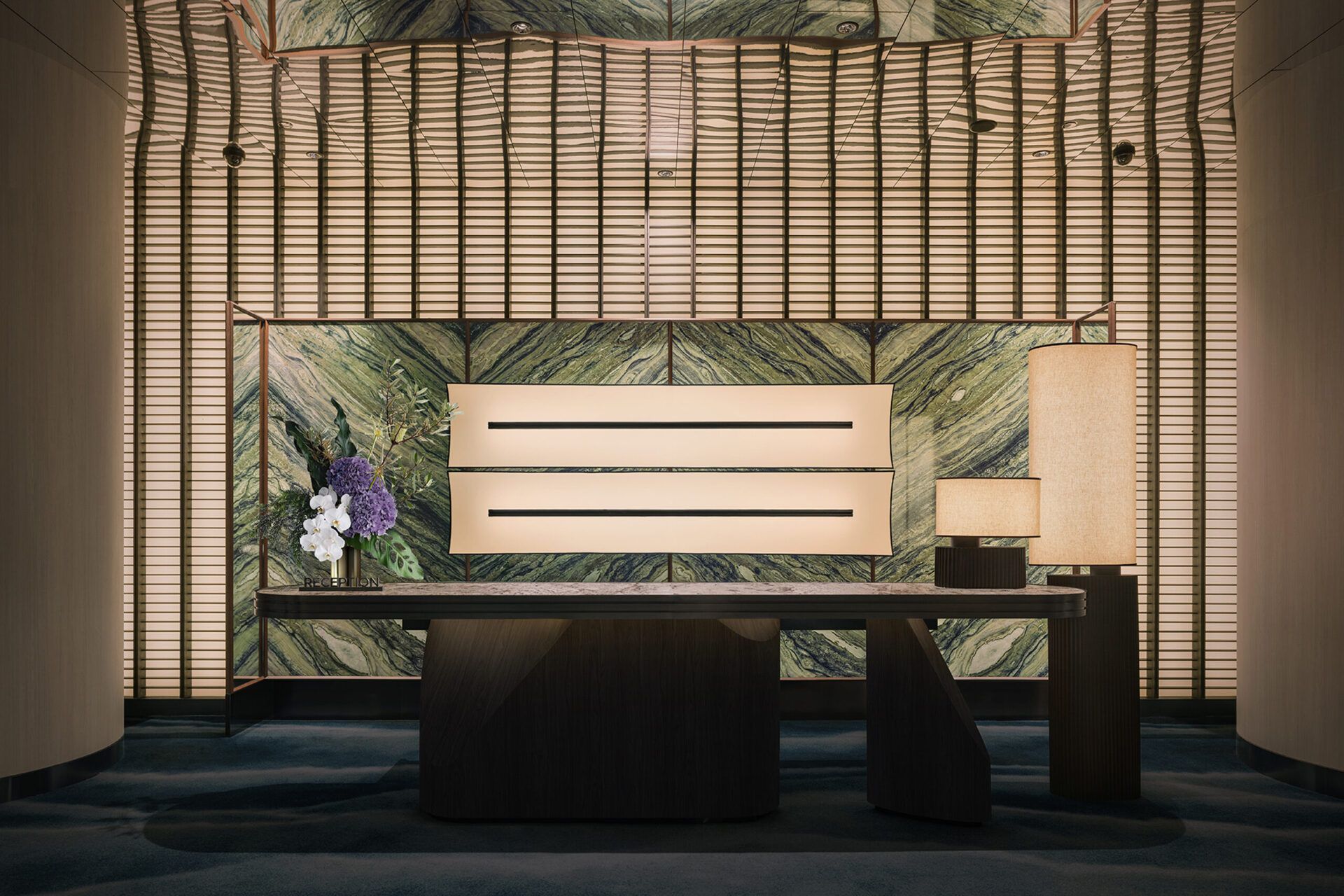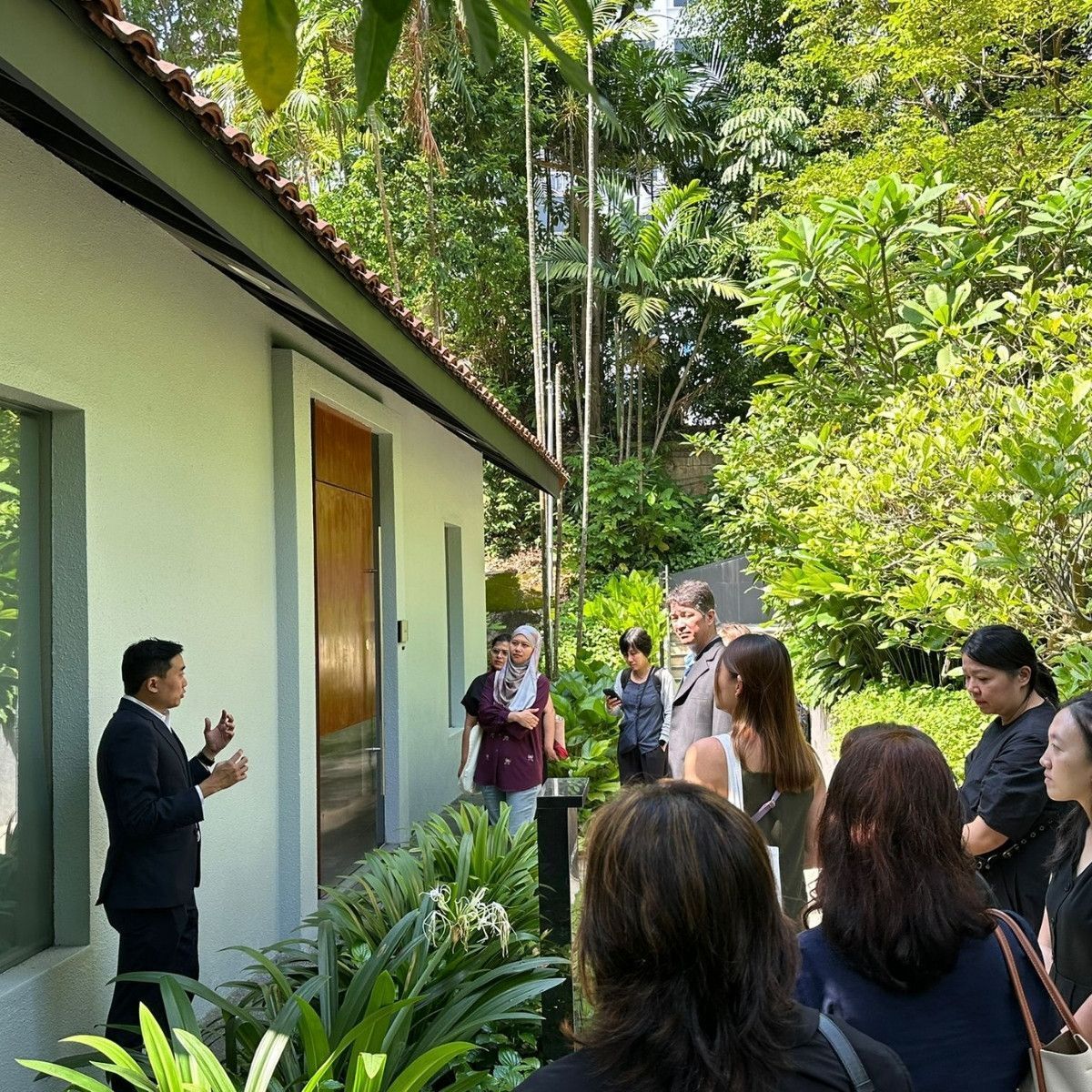- Asia Sustainable Travel
- Posts
- How These Hotels Turn Urban Sustainability Challenges Into Scalable Impact
How These Hotels Turn Urban Sustainability Challenges Into Scalable Impact
Dear AST friend,
We hope you had a chance to join our webinar with Baotree last week!
If not, no worries. We’ll be sharing the recording soon. (So yes, that’s your cue to keep an eye on this newsletter each week!)
In the meantime, this week’s Feature Story shines a light on three standout hotels we recently visited in two of Asia’s busiest cities.
Each of them tackles sustainability challenges head-on, and proves that even in dense urban environments, responsible hospitality can not only thrive but elevate the guest experience.
If you like our content and want to support us, please share this newsletter with your friends to help us grow.
We plant a tree to welcome every new subscriber through our partnership with OneSeed.

How These Hotels Turn Urban Sustainability Challenges Into Scalable Impact
Across cities in Asia where land is scarce, energy costs are high, and infrastructure is often stretched, hotel developers find themselves at the intersection of rising expectations and urban realities.
Sustainability has become both a brand imperative and a regulatory compliance.
Guests want to see visible and verifiable sustainability efforts. Governments are introducing stricter regulations. But delivering on those promises amid the constraints of dense urban environments may also be the hardest.
From Bangkok to Singapore, designing and operating a sustainable hotel in a city means contending with limited footprints, ever-shifting policies, and relentless pressure on space and resources.
Achieving meaningful impact in these compact city centers requires more than good intentions. It demands innovation, discipline, and long-term thinking.
And yet, it is precisely in these high-pressure environments that innovation flourishes.
As population centers and global travel gateways, cities offer hospitality brands not only their toughest test but their clearest opportunity to lead.
In this article, we spotlight three hotels, Pan Pacific Singapore, Grand Hyatt Singapore, and Kimpton Maa-Lai Bangkok that have risen to the challenge.
Rather than seeing constraints as deal-breakers, they’ve turned them into design prompts and operational innovations.
Their stories offer valuable lessons in how to embed sustainability into the urban guest experience, not as an add-on, but as a defining feature.
Pan Pacific Singapore Sets the Bar for Smart, Scalable, Inclusive Sustainability
At first glance, Pan Pacific Singapore may not immediately register as an “eco-hotel.” Built in 1986, the hotel proves that aging infrastructure is no barrier to modern sustainability.
As a flagship of Pan Pacific Hotels Group, it anchors the group’s identity, operational excellence, and commitment to values-led sustainability.

Pan Pacific Singapore. Photo by David Yeow, Daniel Koh
Operational Intelligence Meets Quiet Ambition
One would imagine that it would require a complete architectural overhaul for a 40-year-old building to meet today’s sustainability goals.
Instead, Pan Pacific Singapore took a smarter approach by optimizing what it already had through intelligent, well-calibrated upgrades.
Between 2023 and 2024 alone, these calibrated interventions such as motion sensors, light sensors, and dimmers helped the hotel cut energy use per guest night by 23%.
Solar panels now contribute over 46,000 kWh annually, enough to power dozens of urban households.
The hotel’s cooling system is integrated into the broader Marina Square district’s, which provides chilled water for consumption across multiple buildings in the area.
→ Read more about why the hotel made this move.
Systems Thinking Accelerates Waste Reduction
EcoBurner chafing systems saved over 76,000 liters of water, prevented 1.5 tonnes of landfill waste, and five tonnes of carbon emissions in 2024.
The Lumitics food waste tracker feeds real-time data back to the kitchen, enabling chefs to adjust straight away, not just in annual reports.
A food digester processed more than 38,000kg of food waste into usable organic matter in 2024.
Kindness Multiplies Impact
But tech isn’t what defines Pan Pacific Singapore’s sustainability ethos. People do.
Through inclusive programming like partnerships with Dementia Singapore and youth culinary education through ComLink+, the hotel is modeling how care-driven hospitality can make tangible impact.
This compassionate approach fuels its support for local groups such as the Children’s Cancer Foundation, Fei Yue Community Services, and Club Rainbow, consistently engaging both guests and staff in giving back.

Pan Pacific Singapore. Photo by David Yeow, Daniel Koh
Grand Hyatt Singapore Bets Big on Net-Zero Future
Unlike Pan Pacific’s retrofitting model, Grand Hyatt Singapore is undertaking a full-scale property transformation.
Phased Transformation: From Early Movers to Future Leaders
Grand Hyatt Singapore’s sustainability journey began over two decades ago. As early as 2002, the hotel adopted green energy management systems, followed by the installation of a gas-powered Tri-generation plant in 2011.
The hotel’s sustainability journey follows a four-phase roadmap.
→ Go deeper into Grand Hyatt Singapore’s strategic roadmap to reach Net-Zero.
Human Capital Powers Innovation
Grand Hyatt’s commitment to decentralized innovation, where “everyone is a researcher,” empowers each team to iterate and propose new solutions.
Director of Engineering Clyric Ng emphasized at “A Grand Future Starts Here” media briefing that this people-powered engagement model allows the hotel to respond quickly to new insights, whether it’s in waste, water, or wellness.
A Forward-Thinking Hotel Runs On 100% Renewable Energy
According to the hotel, it is now powered by 100% renewable energy. The partnership with Flo Energy and the use of traceable Renewable Energy Certificates (RECs) mark a quantitative shift in how hotels approach clean energy.
This is about ensuring that every kilowatt-hour used is matched with verifiable, renewable input, directly positioning the hotel as a pioneer in the city-state’s hospitality sector to support Singapore’s Green Plan 2030.

Photo by Grand Hyatt Singapore
Kimpton Maa-Lai Bangkok Invites the City In with Its Generous Hospitality
Located next to leafy Lumphini Park on Langsuan Road, consistently ranked among Thailand’s best hotels, Kimpton Maa-Lai Bangkok dedicates more than 40% of its 8,503 m² of prime real estate to publicly accessible green space.
In Bangkok, where the average green area per person is among the lowest in Asia, this move is highly generous.

Photo by Kimpton Maa-Lai Bangkok
Civic-Minded Hospitality Enhances Collective Wellbeing
Unlike many luxury properties that wall off their gardens, Kimpton opens them.
This act of generosity transforms hotel space into shared public space, forming the connective tissue between the hotel and its surrounding community.
Pets, families, and everyday Bangkokians walk, pause, and breathe here. The hotel invites the city in and redefines luxury hospitality as a contribution to community wellbeing and inclusivity.
Inclusivity Makes A Stronger Brand
Through partnerships with STEPS, Kimpton integrates neurodiverse talent into its service teams and culinary events like “Inclusivi-tea”.
Inclusion is built into hiring, training, and even guest experience. Over 70% of IHG properties in Thailand now follow this model.
Are Asia’s Cities the Next Sustainable Hospitality Frontier?
If Asia’s islands and eco-resorts have traditionally led the region’s sustainable travel discourse, its cities are now stepping up, redefining what’s possible under real constraints.
Asia’s cities may be among the most complex environments to run a sustainable hotel, but that’s exactly why they matter.
These three hotels demonstrate that urban density should not diminish sustainability ambition, but rather accelerate innovation.

Tell Us What You Need Next
Since the very beginning, we have never lost sight of our mission, which is to equip you with the content, tools, insights, and connections to make sustainability integration more seamless at your job.
To build something that you need, we want to know: What's your biggest pain point when it comes to sustainability integration ⁉️
1️⃣ Struggle to prove ROI to leaders or investors
2️⃣ Not sure about what actually moves the needle
3️⃣ Do not have enough time or staff to take action
4️⃣ Do not have access to verified data or trusted suppliers
5️⃣ Not able to get policy-makers to make and enforce regulations
Reply to this email with your response.
Your feedback will shape what we build next.

This newsletter may contain affiliate links. If you click on one and make a purchase, we may earn a commission at no additional cost to you. Our recommendations are based on thorough research and personal experience, and we only promote products and services we genuinely believe in. Thank you for supporting our work.









